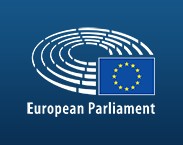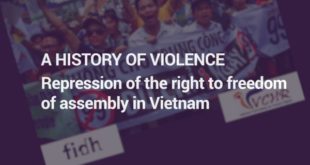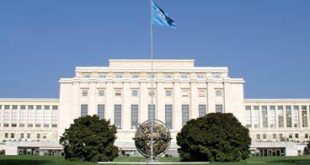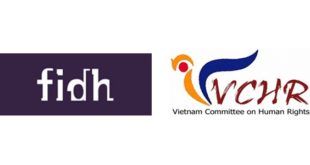 The European Parliament,
The European Parliament,
– having regard to its previous resolutions on the situation in Vietnam,
– having regard to the statement of 18 December 2015 by the Spokesperson of the European External Action Service on the arrest of lawyer Nguyễn Văn Đài,
– having regard to the statement of the EU Heads of State or Government of 7 March 2016,
– having regard to the press statement of the Spokesperson of the UN High Commissioner for Human Rights on 13 May 2016 in Geneva on Turkey, The Gambia and Vietnam,
– having regard to the declaration of 3 June 2016 by the UN Special Rapporteur on freedom of religion or belief, Heiner Bielefeldt, and the UN Special Rapporteur on torture, Juan E. Méndez, which has been endorsed by the UN Special Rapporteur on the situation of human rights defenders, Michel Forst, the UN Special Rapporteur on the rights to freedom of peaceful assembly and of association, Maina Kiai, the UN Special Rapporteur on the promotion and protection of the right to freedom of opinion and expression, David Kaye, the UN Special Rapporteur on violence against women, its causes and consequences, Dubravka Šimonović, and the Working Group on Arbitrary Detention,
– having regard to the Partnership and Cooperation Agreement between the EU and Vietnam signed on 27 June 2012 and to the annual EU-Vietnam human rights dialogue between the EU and the Government of Vietnam, which was last held on 15 December 2015,
– having regard to the EU guidelines on human rights,
– having regard to the Universal Declaration of Human Rights of 1948,
– having regard to the International Covenant on Civil and Political Rights (ICCPR), to which Vietnam acceded in 1982,
– having regard to the International Convention on the Elimination of All Forms of Discrimination against Women, to which Vietnam has been a state party since 1982,
– having regard to the UN Convention against Torture, which was ratified by Vietnam in 2015,
– having regard to the Universal Periodic Review Outcome of Vietnam by the UN Human Rights Council of 28 January 2014,
– having regard to Rules 135(5) and 123(4) of its Rules of Procedure,
A. whereas the EU considers Vietnam to be an important partner in Asia; whereas 2015 marks the 25th anniversary of EU-Vietnam relations; whereas these relations have broadened rapidly from trade and aid to a more comprehensive relationship;
B. whereas Vietnam has been a one-party state since 1975, with the Communist Party of Vietnam (CPV) allowing no challenge to its leadership and having control of the National Assembly and the courts;
C. whereas the Vietnamese authorities have cracked down heavily in response to a series of demonstrations taking place throughout the country in May 2016, which were organised following an ecological catastrophe that decimated the nation’s fish stocks;
D. whereas a Vietnamese lawyer and human rights activist, Lê Thu Hà, was arrested on 16 December 2015, at the same time as a prominent fellow human rights lawyer, Nguyễn Văn Đài, who was arrested for conducting propaganda against the state; whereas on 22 February 2016 human rights defender Trần Minh Nhật was attacked by a police officer at his home in Lâm Hà district, Lâm Đồng Province; whereas Trần Huỳnh Duy Thức, who was imprisoned in 2009 after a trial with no meaningful defence, received a sentence of 16 years followed by five years under house arrest; whereas there is serious concern for the deteriorating health of Buddhist dissident Thích Quảng Độ, who is currently under house arrest;
E. whereas independent political parties, labour unions and human rights organisations are banned in Vietnam, with official approval needed for public gatherings; whereas some peaceful protests have been heavily policed, with high-profile activists kept under house arrest, while other demonstrations were broken up or prohibited outright from taking place;
F. whereas wide-ranging police measures to prevent and punish participation in demonstrations have resulted in a range of human rights violations, including torture and other cruel, inhuman or degrading treatment and punishment, as well as violations of the rights to peaceful assembly and freedom of movement; whereas conditions of detention and treatment of prisoners are harsh, with reports of at least seven deaths in police custody in 2015 with suspicions of possible police torture or other forms of ill-treatment;
G. whereas, despite accepting 182 of the 227 recommendations put forward by the UN Human Rights Council at its June 2014 periodic review, Vietnam rejected recommendations such as the release of political prisoners and people detained without charge or trial, legal reform to end political imprisonment, the creation of an independent national human rights institution and other steps aimed at promoting public participation; whereas, however, Vietnam has recently allowed international human rights groups to meet with representatives of the opposition and government officials for the first time since the end of the Vietnam War;
H. whereas Vietnam persists in invoking vaguely worded ‘national security’ provisions in the criminal code such as ‘anti-state propaganda’, ‘subversion’ or ‘abuse of democratic freedoms’ in order to incriminate and silence political dissidents, human rights defenders and perceived government critics;
I. whereas in May 2016 a BBC correspondent, Jonathan Head, was allegedly prohibited from covering President Obama’s visit to Vietnam and stripped of accreditation, without being given an official reason; whereas Kim Quốc Hoa, the former editor-in-chief of the newspaper Người Cao Tuổi, had his journalist’s licence revoked in early 2015 and was later prosecuted under Article 258 of the criminal code for abusing democratic freedoms, after the newspaper exposed a number of corrupt officials;
J. whereas Vietnam ranks 175th out of 180 in Reporters without Borders’ 2016 World Press Freedom Index of 2016, with the print and broadcast media being controlled by the CPV, the military or other government bodies; whereas Decree 72 of 2013 further restricts speech on blogs and social media, with Decree 174 of 2014 enforcing harsh penalties on social media and internet users who voice ‘anti-state propaganda’ or ‘reactionary ideologies’;
K. whereas freedom of religion or belief is repressed and many religious minorities suffer from severe religious persecution, including members of the Catholic Church and non-recognised religions such as the Unified Buddhist Church of Vietnam, several Protestant churches and members of the ethno-religious Montagnard minority, as observed by the UN Special Rapporteur on freedom of religion or belief during his visit to Vietnam;
L. whereas in April 2016 Vietnam adopted a Law on Access to Information and an amended Press Law which restrict freedom of expression and reinforce censorship, as well as regulations banning demonstrations outside courts during trials;
M. whereas Vietnam’s ranking in the World Economic Forum’s Gender Gap Index fell from 42nd in 2007 to 83rd in 2015, and whereas the UN Convention on the Elimination of Discrimination against Women criticised the Vietnamese authorities for failing to grasp the ‘concept of substantive gender equality’; whereas despite some progress, domestic violence, trafficking in women and girls, prostitution, HIV/AIDS and violations of sexual and reproductive rights remain problems in Vietnam;
N. whereas the Comprehensive Partnership and Cooperation Agreement aims to establish a modern, broad-based and mutually beneficial partnership, based on shared interests and principles such as equality, mutual respect, the rule of law and human rights;
O. whereas the EU has commended Vietnam for continued progress in socio-economic rights, while expressing persisting concerns at the situation of political and civil rights; whereas, however, at the annual human rights dialogue the EU raised the issues of restrictions on freedom of expression, freedom of the media and freedom of assembly;
P. whereas the EU is Vietnam’s biggest export market; whereas the EU together with its Member States is the largest provider of official development assistance to Vietnam, and whereas there will be an EU budget increase for this purpose of 30 % to EUR 400 million in 2014-2020;
1. Welcomes the strengthened partnership and the human rights dialogue between the EU and Vietnam; applauds Vietnam’s ratification last year of the UN Convention against Torture;
2. Calls on the Government of Vietnam to put an immediate stop to all harassment, intimidation, and persecution of human rights, social and environmental activists; insists that the government respect these activists’ right to peaceful protest and release anyone still wrongfully held; asks for the immediate release of all activists who have been unduly arrested and imprisoned such as Lê Thu Hà, Nguyễn Văn Đài, Trần Minh Nhật, Trần Huỳnh Duy Thức and Thích Quảng Độ;
3. Expresses strong concerns about the increasing levels of violence perpetrated against Vietnamese protesters expressing their anger over the mass deaths of fish along the country’s central coast; asks for the publication of the results of the investigations into the environmental disaster and for those responsible to be held accountable; calls on the Government of Vietnam to respect the right to freedom of assembly in line with its international human rights obligations;
4. Condemns the conviction and harsh sentencing of journalists and bloggers in Vietnam such as Nguyễn Hữu Vinh and his colleague Nguyễn Thị Minh Thúy, and Đặng Xuân Diệu, and calls for their release;
5. Deplores the continuing violations of human rights in Vietnam, including political intimidation, harassment, assaults, arbitrary arrests, heavy prison sentences and unfair trials, perpetrated against political activists, journalists, bloggers, dissidents and human rights defenders, both on- and offline, in clear violation of Vietnam’s international human rights obligations;
6. Expresses concerns at the consideration by the National Assembly of a Law on Associations and a Law on Belief and Religion which are incompatible with international norms of freedom of association and freedom of religion or belief;
7. Urges Vietnam to further strengthen cooperation with human rights mechanisms and improve compliance with treaty body reporting mechanisms; reiterates its calls for progress in the implementation of the Universal Periodic Review recommendations;
8. Repeats its calls for the revision of specific articles in the Vietnamese criminal code that are used to suppress freedom of expression; considers it regrettable that none of the 18 000 prisoners granted amnesty on 2 September 2015 were political prisoners; condemns Vietnam’s detention and prison conditions, and demands that the Vietnamese authorities guarantee unrestricted access to legal counsel;
9. Urges the Government of Vietnam to establish effective accountability mechanisms for its police forces and security agencies, with a view to stopping abuse against prisoners or detainees;
10. Calls on the authorities to put an end to religious persecution and to amend their legislation on the status of religious communities in order to re-establish the legal status of non-recognised religions; calls on Vietnam to withdraw the fifth draft of the Law on Belief and Religion, which is currently under debate in the National Assembly, and to prepare a new draft that conforms to Vietnam’s obligations under Article 18 of the International Covenant on Civil and Political Rights; calls for the release of religious leaders, including Pastor Nguyễn Công Chính, Trần Thị Hồng and Ngô Hào;
11. Requests that Vietnam combat discrimination against women by introducing anti-trafficking legislation and by taking effective steps toward curbing domestic violence and violations of reproductive rights;
12. Commends Vietnam for its leading role in Asia on the development of lesbian, gay, bisexual, transgender and intersex (LGBTI) rights, in particular the recently adopted law on marriage and family which allows same-sex wedding ceremonies;
13. Calls on the ASEAN Intergovernmental Commission on Human Rights to examine the situation concerning the state of human rights in Vietnam, with a special focus on freedom of expression, and to make recommendations to the country;
14. Calls on the Vietnamese Government to issue a standing invitation to UN Special Procedures, and in particular invitations to the Special Rapporteur on freedom of expression and the Special Rapporteur on the situation of human rights defenders;
15. Calls for the EU to increase its political dialogue on human rights with Vietnam under the Comprehensive Partnership and Cooperation Agreement;
16. Asks the EU Delegation to use all appropriate tools and instruments to accompany the Government of Vietnam in these steps and to support and protect human rights defenders; underlines the importance of human rights dialogue between the EU and the Vietnamese authorities, especially if this dialogue is followed by real implementation; stresses that this dialogue should be effective and results-oriented;
17. Acknowledges the efforts of the Vietnamese Government in strengthening EU-ASEAN relations and its support for EU membership of the East Asia Summit;
18. Commends Vietnam’s achievement of a significant number of Millennium Development Goals, and calls on the Commission and the Vice-President of the Commission/High Representative of the Union for Foreign affairs and Security Policy to provide continued support to the Vietnamese authorities and to non-governmental organisations and civil society organisations in the country in the framework of the post-2015 Development Agenda;
19. Instructs its President to forward this resolution to the Vice-President of the Commission/High Representative of the Union for Foreign affairs and Security Policy, the governments and parliaments of the Member States, the Government and National Assembly of Vietnam, the governments and parliaments of the ASEAN member states, the United Nations High Commissioner for Human Rights and the Secretary-General of the United Nations.
See VCHR’s statement (June 9, 2016): European Parliament strongly condemns abuses of freedom of expression, assembly and religion in Vietnam
This post is also available in: French
 Quê Me Quê Me: Action for democracy in Vietnam & Vietnam Committee on Human Rights
Quê Me Quê Me: Action for democracy in Vietnam & Vietnam Committee on Human Rights




